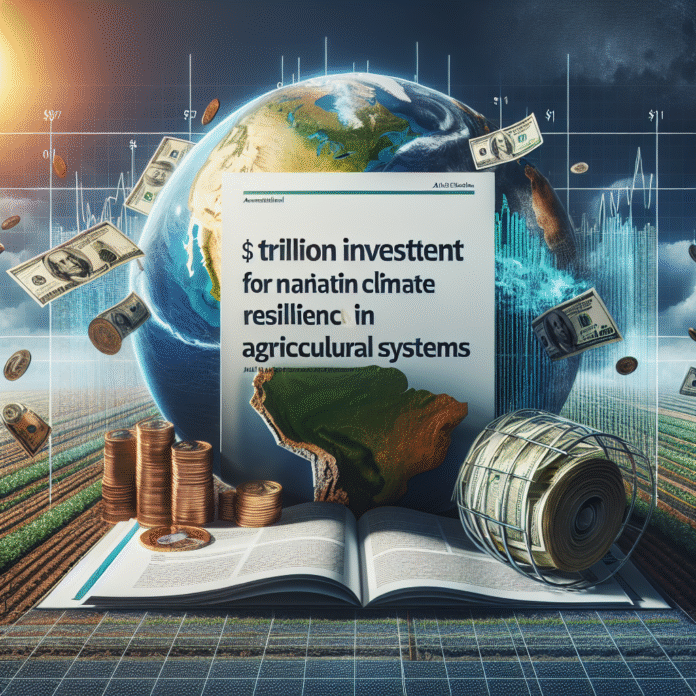Over One Trillion Annually Required for Climate Resilience in Food Systems
Study Reveals Need for Over $1 Trillion Annually to Enhance Climate Resilience in Global Food Systems
A recent study highlights an urgent need for more than $1 trillion each year to integrate climate resilience into the world’s food systems. This financial commitment is essential to address the escalating challenges posed by climate change, which include extreme weather events, shifting agricultural zones, and water scarcity.
The research emphasizes that without significant investment, global food security could be jeopardized, impacting millions of people, particularly in vulnerable regions. It advocates for innovative agricultural practices, improved infrastructure, and the adoption of resilient crop varieties as critical steps in this transition.
Furthermore, the study outlines the potential economic benefits of investing in climate-resilient food systems. By enhancing productivity and reducing losses caused by climate impacts, countries could see a substantial return on investment. Additionally, building resilience in food systems is not just an environmental imperative but a pathway to achieving broader socio-economic goals, such as poverty reduction and enhanced nutrition.
Governments, private sector stakeholders, and international organizations are urged to collaborate and mobilize resources to meet this funding challenge. By prioritizing climate resilience, the global community can work towards a more sustainable and secure food future for all.


